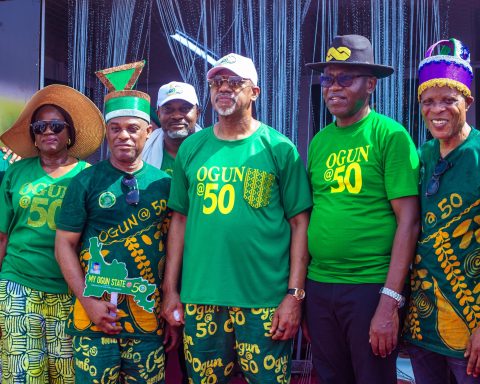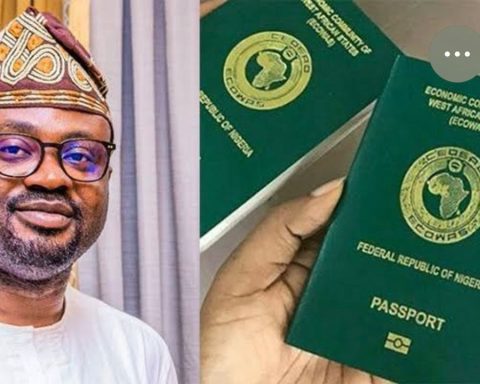When Willie Obiano took office as governor of Anambra State in March 2014, he inherited an economy valued at ₦3.2 trillion and a poverty rate of 53%. By the time he left in 2022, the state’s economy had grown to ₦4.4 trillion, poverty had plunged to 14.8%, and Anambra had climbed to become Nigeria’s fourth-largest economy. For his supporters, those numbers tell the story of a man who delivered on his promises. For his critics, they are overshadowed by lingering questions of accountability.
As Obiano turns 70, the conversation about his legacy is as lively as ever.
Join our WhatsApp ChannelFrom Banker to Governor
Born on August 8, 1955, Obiano was a successful banker before joining politics under the All Progressives Grand Alliance (APGA). His rise was swift handpicked by his predecessor, Peter Obi, and winning the governorship in 2013.
His technocratic style shaped much of his administration. He championed fiscal reforms, promoted digital governance through the Anambra State ICT Agency, and attracted investors to industrial hubs. Under his watch, power supply improved in key business districts, road networks expanded, and three flyovers transformed traffic flow in Awka.
But his signature project remains the Chinua Achebe International Airport, a sprawling facility aimed at positioning Anambra as a regional trade and travel hub.
Building Growth, Reducing Poverty
The numbers from his eight years in office are hard to ignore. Economic analysts credit his policies for attracting investments in agriculture, manufacturing, and commerce. Programs supporting rice farming and export-oriented businesses boosted job creation and food security.
“Obiano’s model was simple: create infrastructure, improve security, and investors will come,” says Dr. Ifeanyi Oguejiofor, a political economist at Nnamdi Azikiwe University. “For the most part, it worked.”
READ ALSO:Ghana Extradites Three Over $100m Romance Scam, Business Email Fraud To U.S.
Relishing Ugba [Oil Bean] Delicacy
Greener Past, Greener Future: Nigerian Food Traditions Leading The Way
The Cloud Over the Legacy
Yet, even as praise flows, shadows linger. Obiano is currently facing trial by the Economic and Financial Crimes Commission (EFCC) over allegations of diverting ₦4 billion in security votes and public funds during his tenure. The case, set to resume in November 2025, has rekindled debates about whether good governance can truly coexist with unresolved allegations of corruption.
The former governor has denied wrongdoing, calling the charges politically motivated. But for many, the courtroom drama is a reminder that legacies are rarely settled on the day a leader leaves office.
Reflections at 70
Obiano’s 70th birthday on Friday drew tributes from political allies, APGA members, and community leaders. “He is a leader with a human touch,” said APGA chairman Barr. Sly Ezeokenwa in a statement. “His vision reshaped Anambra and gave our party a renewed sense of purpose.”
Internationally, Obiano is remembered for his efforts to make Anambra a viable business hub in Southeast Nigeria. Locally, residents recall his administration’s focus on community development rural electrification projects, schools renovation, and increased healthcare access.
Still, opinions remain divided. “He gave us an airport and better roads,” said Ifunanya Nwosu, a secondary school teacher in Onitsha, “but the EFCC case leaves a bad taste. I hope he clears his name.”
Why it matters?
Obiano’s story matters beyond Anambra. It is a case study on how a leader’s tangible achievements poverty reduction, infrastructure expansion, and economic growth can be complicated by allegations of corruption. It forces Nigerians to ask whether development can truly be celebrated if transparency is in doubt.
As the state moves forward under new leadership, Obiano’s mixed legacy remains a touchstone for debates on governance, accountability, and the future of politics in Nigeria.
For now, the former governor celebrates his milestone birthday surrounded by loyalists, critics, and a public watching closely waiting to see whether history will remember him more for the roads he built or the questions he left unanswered.
Amanze Chinonye is a Staff Correspondent at Prime Business Africa, a rising star in the literary world, weaving captivating stories that transport readers to the vibrant landscapes of Nigeria and the rest of Africa. With a unique voice that blends with the newspaper's tradition and style, Chinonye's writing is a masterful exploration of the human condition, delving into themes of identity, culture, and social justice. Through her words, Chinonye paints vivid portraits of everyday African life, from the bustling markets of Nigeria's Lagos to the quiet villages of South Africa's countryside . With a keen eye for detail and a deep understanding of the complexities of Nigerian society, Chinonye's writing is both a testament to the country's rich cultural heritage and a powerful call to action for a brighter future. As a writer, Chinonye is a true storyteller, using her dexterity to educate, inspire, and uplift readers around the world.









